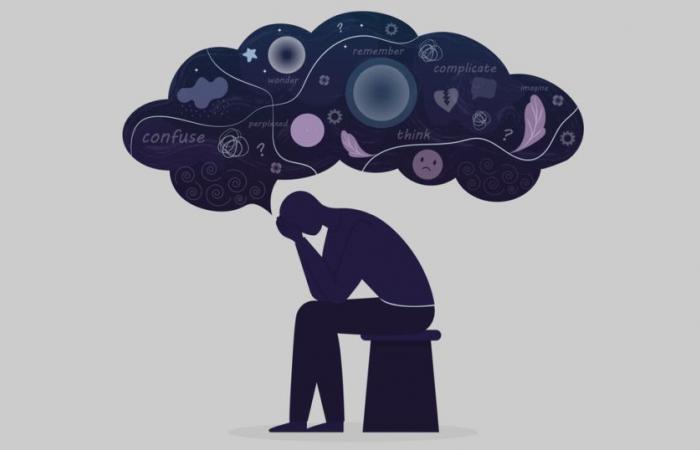During their lifetime, approximately one in five women and one in ten men experience at least one episode of Major Depressive Disorder (MDD), which requires rapid diagnosis to limit the risk of suicide. But when properly managed, this type of episode can also lead to better self-knowledge and a feeling of control.
In the Dingue podcast, Gaëtan, a young Swiss student with a bright future, recounts the ordeal he experienced in September 2023 when he joined Sciences Po Paris. “I’m not hungry anymore, I don’t leave the house anymore. I have no idea what I’m going to do for the next few weeks.”
After having invested so much to join this prestigious school, he no longer recognized himself in the image of the brilliant student that he was: “I wrote at the time, and I described myself as someone mediocre , manipulative. A problem for society.” He finally decides to leave Paris to return to Switzerland.
A descent into hell difficult to accept
But the situation deteriorates further: “I have a great feeling of guilt, shame, extreme social phobia even though I am a very extroverted person,” he says.
Quickly, he is invaded by dark thoughts, because what he experiences escapes what he considered possible for him: “In my mind at that moment, if a problem has no solution, it’s is that it’s not a problem, so when we’re the problem, we start to change our perspective,” he analyzes.
He then consults his GP, but he has difficulty accepting the idea that he is going through an episode of MDD. A frequent reaction of astonishment, underlines psychiatrist Guido Bondolfi, honorary professor at the University of Geneva and former head of liaison psychiatry at HUG.
Adapted and effective support
After this delicate stage of acceptance, Gaëtan is followed by a psychiatrist who offers him, for six to seven weeks, a combination of psychotherapy and a selective serotonin inhibitor antidepressant (SSRI). This approach is proving effective, which does not surprise Guido Bondolfi: “We know that treatments such as psychotherapy and combined pharmacological treatments allow two thirds of people who receive them to be in complete remission.”
Concerning the third of patients who do not respond to this initial treatment, it is crucial not to become discouraged, insists the specialist. “We do not have predictive factors to know which treatment will be best suited to a person,” he explains. And while there are a wide range of SSRIs and alternatives for resistant cases, he points out that you don’t always immediately find “the right shoe for this or that person’s foot.”
Post-traumatic growth and relapse risk
The scientific literature indicates that a person who has experienced a first episode of MDD has a 50% risk of recurrence, which increases significantly after a second episode. But Gaëtan refuses to see it as inevitable: “I don’t really see myself in this statistic because I clearly had the opportunity, following my depression and thanks to therapy, to really redefine who I wanted to be and how I wanted to live my life”, he testifies.
This process of redefining priorities and values, known in psychiatry, is called “post-traumatic growth”. Furthermore, even if a relapse were to occur, this prospect no longer frightens him: “I feel much more armed and equipped to understand how I function and how I react to life. I know what strategies to put in place if I have to relapse, and it gives me a feeling of control, like I’ve had training.”
Thus, despite the ordeal, Gaëtan believes today that this experience was generally positive: “I think that now I live my life with great freedom. I would have no problem understanding that it is better to separate from people and situations that we cannot influence, rather than trying to put up with them and suffer from them. It gives me a feeling of serenity that I have never experienced before.
>> Listen to the podcast:
Adrien Zerbini






